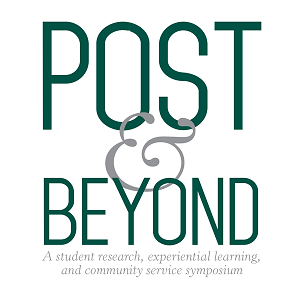Prenatal Genetic Counselors' Experiences and Self-Assessed Confidence in Delivering Diagnoses of Disorders of Sexual Development (DSDs)
Faculty Mentor
Monika Zak
Area of Research
Genetics
Major
Genetic Counseling, M.S.
Description
Disorders of sex development (DSDs) are congenital conditions involving atypical chromosomal, gonadal, or anatomical sex development. These conditions were historically diagnosed postnatally, typically after the birth of an infant with ambiguous genitalia or unexpected physical findings. However, with the expanded use of non-invasive prenatal testing (NIPT) for sex chromosome aneuploidies and detailed prenatal ultrasounds, DSDs are now increasingly identified prenatally due to discrepancies between genetic sex and observed anatomy. This shift has moved diagnosis into the prenatal period, requiring genetic counselors (GCs) to navigate complex and sensitive discussions earlier in pregnancy, presenting new challenges for counseling practice. This study surveyed genetic counselors to assess their self-reported confidence when delivering prenatal DSD diagnoses and to explore consensus on counseling priorities. Participants rated their confidence across several counseling topics, ranked these topics by importance and time allocation, and identified factors that influence their confidence. Counselors reported the highest confidence in supporting reproductive decisions (mean score: 4.3/5) and offering psychosocial support (3.7), while confidence was lower in discussing gender and sexuality (2.7) and medical/surgical management (2.4). Disorder-related symptoms were ranked as the most important topic, with 42% of counselors spending more than 20 minutes discussing it. Significant associations were found between time spent and perceived importance for disorder-related symptoms and psychosocial support. Lower confidence was associated with topics deemed less important, such as sexual orientation and social stigma, indicating a relationship between perceived relevance and topic engagement. Key factors influencing confidence included access to resources (81%), clinical experience and training (73%), continuing education (42%), and interdisciplinary collaboration (38%). These findings underscore the need for targeted training, clinical guidelines, and collaborative care models to help GCs provide informed, confident, and compassionate prenatal counseling for DSD cases.
Prenatal Genetic Counselors' Experiences and Self-Assessed Confidence in Delivering Diagnoses of Disorders of Sexual Development (DSDs)
Disorders of sex development (DSDs) are congenital conditions involving atypical chromosomal, gonadal, or anatomical sex development. These conditions were historically diagnosed postnatally, typically after the birth of an infant with ambiguous genitalia or unexpected physical findings. However, with the expanded use of non-invasive prenatal testing (NIPT) for sex chromosome aneuploidies and detailed prenatal ultrasounds, DSDs are now increasingly identified prenatally due to discrepancies between genetic sex and observed anatomy. This shift has moved diagnosis into the prenatal period, requiring genetic counselors (GCs) to navigate complex and sensitive discussions earlier in pregnancy, presenting new challenges for counseling practice. This study surveyed genetic counselors to assess their self-reported confidence when delivering prenatal DSD diagnoses and to explore consensus on counseling priorities. Participants rated their confidence across several counseling topics, ranked these topics by importance and time allocation, and identified factors that influence their confidence. Counselors reported the highest confidence in supporting reproductive decisions (mean score: 4.3/5) and offering psychosocial support (3.7), while confidence was lower in discussing gender and sexuality (2.7) and medical/surgical management (2.4). Disorder-related symptoms were ranked as the most important topic, with 42% of counselors spending more than 20 minutes discussing it. Significant associations were found between time spent and perceived importance for disorder-related symptoms and psychosocial support. Lower confidence was associated with topics deemed less important, such as sexual orientation and social stigma, indicating a relationship between perceived relevance and topic engagement. Key factors influencing confidence included access to resources (81%), clinical experience and training (73%), continuing education (42%), and interdisciplinary collaboration (38%). These findings underscore the need for targeted training, clinical guidelines, and collaborative care models to help GCs provide informed, confident, and compassionate prenatal counseling for DSD cases.

